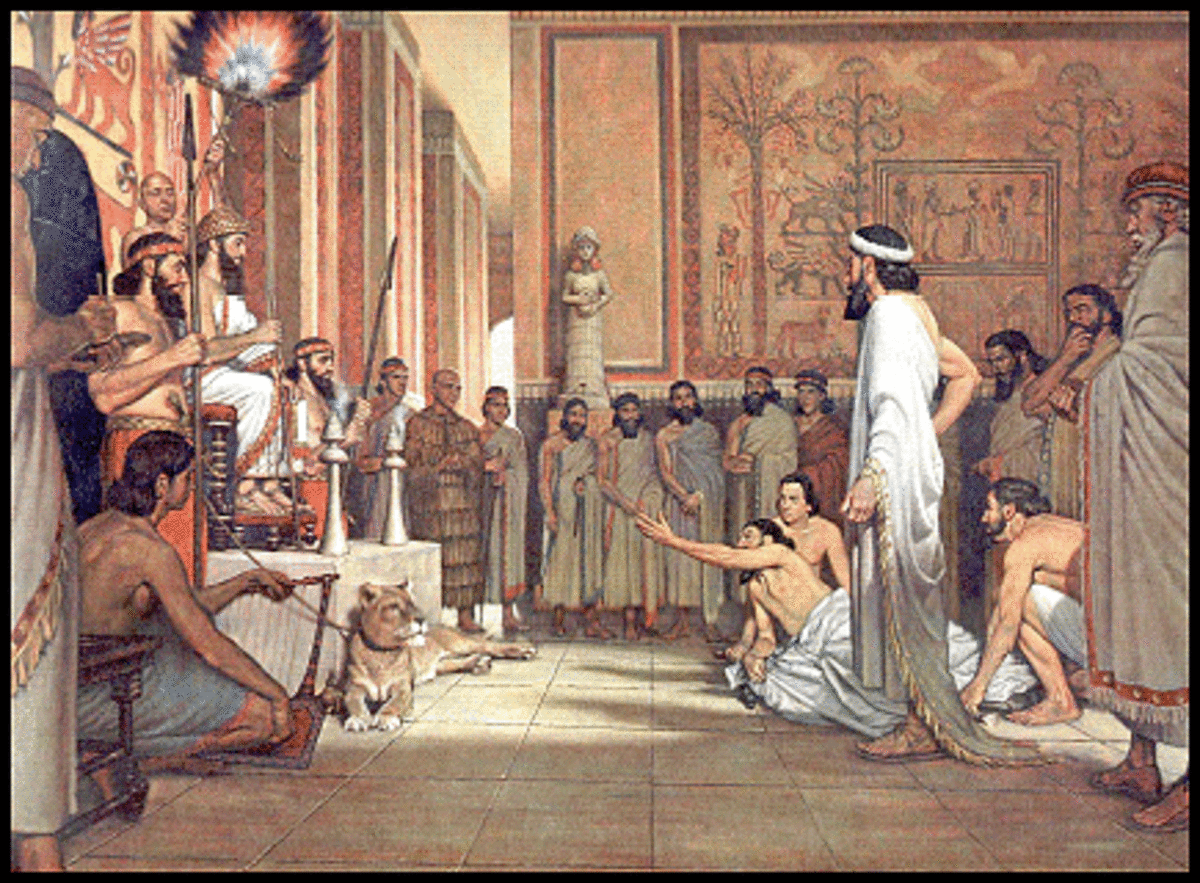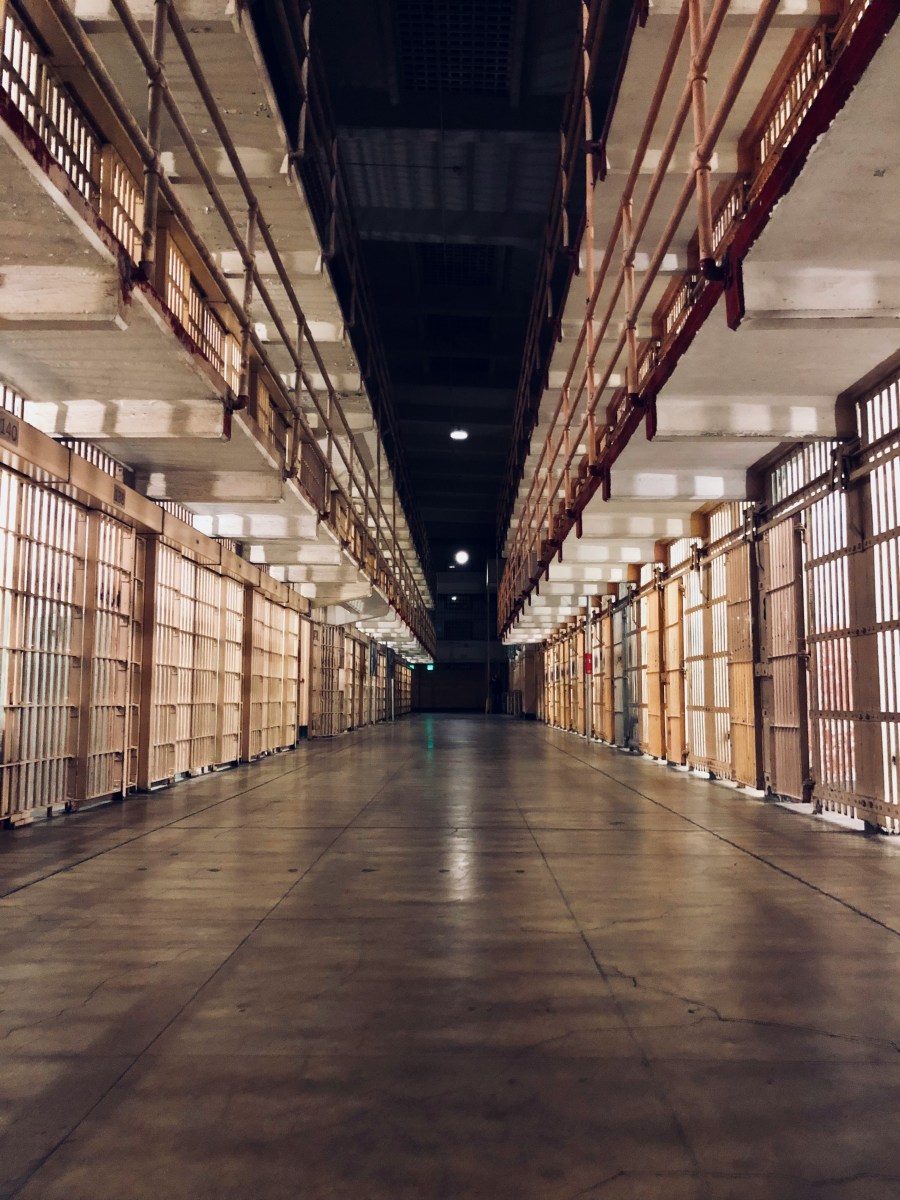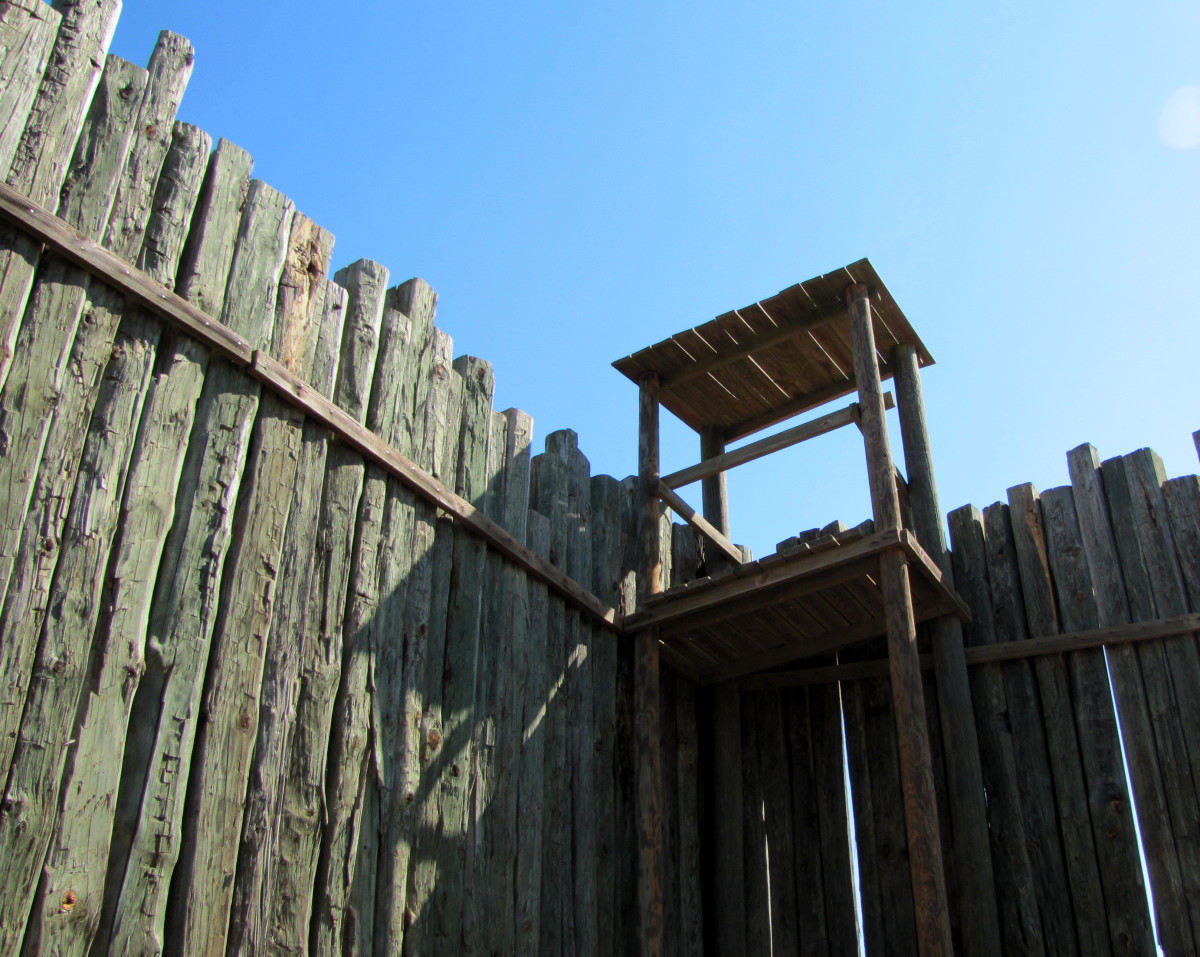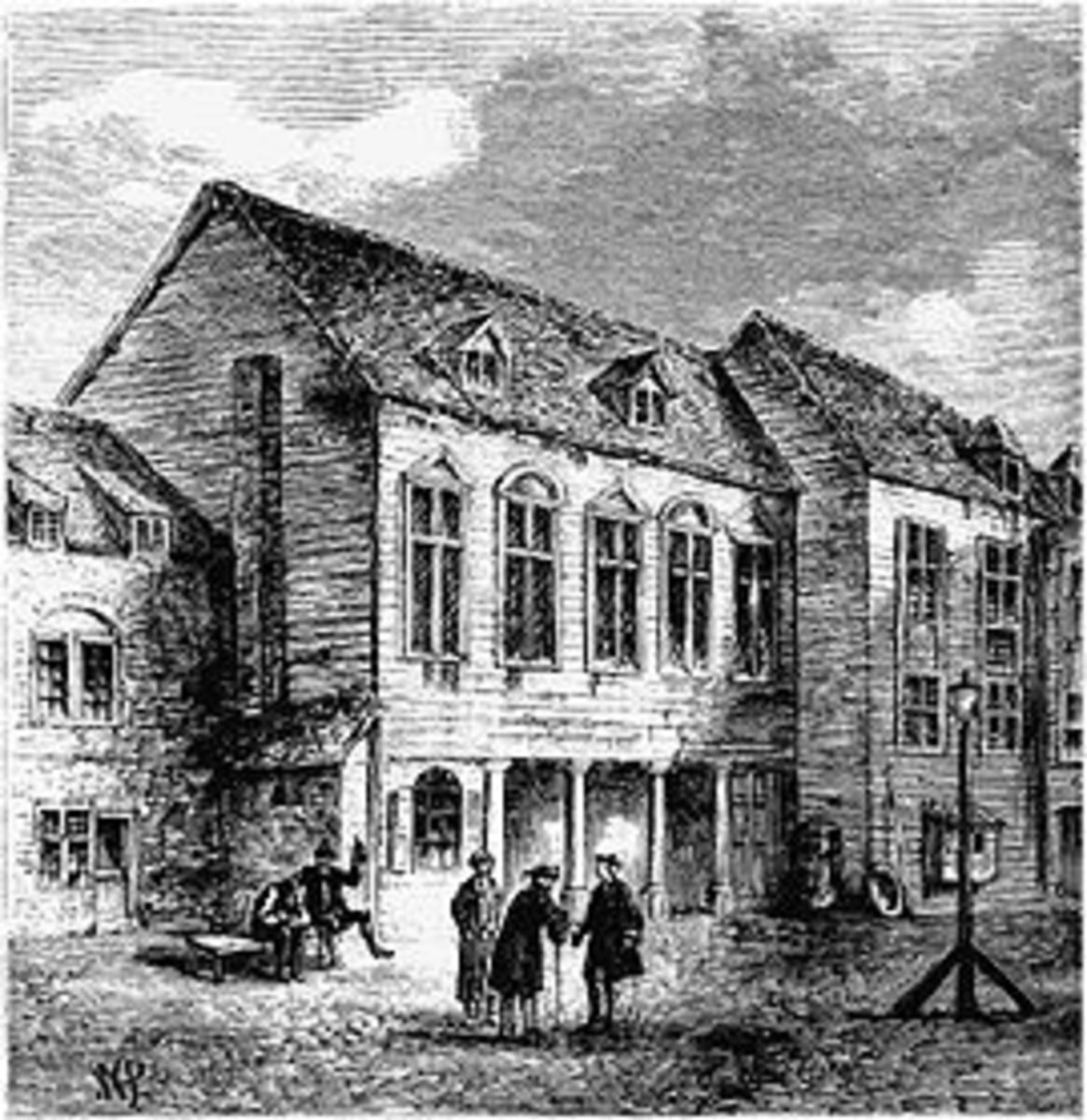Privatized Prisons
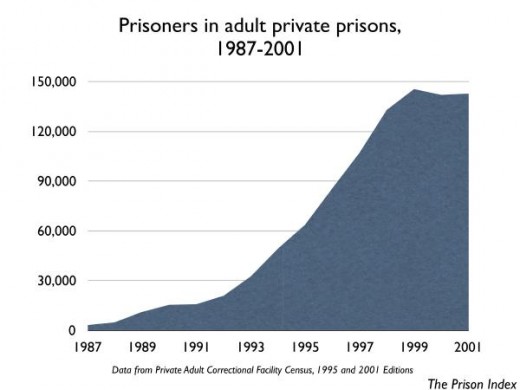
Should There be Privatized Prisons?
Wherever a profit can be made, there you will find those who are willing to invest in order to make a killing. Capitalists have learned and used various means in order to drive down costs. One of the costs of production has always been the cost of labor. This is one of the costs that can be manipulated and the ways that this is done is by using off-shore labor, slave labor and prisoners who have lost their rights due to the nature of the law. So the question "Should there be privatized prisons?” has to be seen in the larger context that impacts everyone that has a job.
The real cost of cheaper labor in any form comes as a result of finding and using workers who will do the same job for less than another worker already doing that job. Thus the employer or owner of the means of production will seek out ways to cut labor costs wherever that is possible. Traditionally, this was done by avoiding shops from becoming unionized or busting unions already in existence. Often times, especially in times of high unemployment and plant strikes, employers would resort to bringing in "scab labor" to keep production going. Over the period of the late 1970's to the present (2010), the trend has been to increasing to rely on "off-shore" labor, prison labor and even slaves.
For much of history, prisons have been the domain of governments, but by the 1980's private prisons began to emerge. Now one has to ask, why something that costs so much to run, would even be considered as a private enterprise. To inter and keep someone in prison, fed, housed and healthy for the term of a sentence, costs the "taxpayer" some $45,000 up to $110,000 a year; figures much higher than the average wage for the average worker. But what is included in this figure is the pay for the prison guards that often make more than the average worker. There is the cost of food, which the prisoners do not pay for, the cost of heating in the winter and power for lighting, fuel for vehicles and so on. A typical company has the same outlay of costs to keep a plant running efficiently. An average company has an additional cost that a prison does not have, and that is labor costs, or the pay that is required to keep workers in a state to reproduce their labor for the next pay period and for the following generations of workers.
Prisoners, who give up their rights due to the conviction of a criminal offense often do not have any say in what they have to do in the prison setting. Initially, prisoners had to do cooking, yard work in some states and provinces, work required by the state in the form of chain gangs. They were often not paid for the work done. As housing and food was provided by the state and the fact that they were repaying debt to society for a crime committed, they received no pay for work done. In the pre Civil War south, a similar arrangement existed in chattel slavery. As the slave owner kept the slave, something like pets, they provided housing such as it was and some means where the slaves could obtain food and eat.
In the era beginning in the 1980's where the government was cutting costs, prisons were tendered to contractors in a bid to privatize. The private prison owner then had to make the prison pay for itself in order to stay in business. Further, the private prison owner had to turn a profit. Now those of us, who are familiar with the profit generating side of capital, know that costs have to be cut, production increased and expansion is essential to keep income greater than expenses. The prisoner by default of his or her conviction and resulting repayment to society for any crime committed fulfilled a multiple role in cutting labor costs and increasing production by expanding numbers in the prison system. The last part is essential in the equation and is what lies behind the US's highest rate of incarceration in the world. Further there is an growing list of offenses that a person can be convicted and imprisoned for.
Since the economic downturn following the energy crisis of 1974, the economy slowed and by the 1980's unemployment was high. If you are aware of the consequences of this era, crime increased; especially drug related crimes. The crime tended to focus on inner cities where unemployment was chronic especially among the black and Hispanic communities. Prisons filled, especially in California which enacted a "three strikes and your out" policy where a person could end up in prison for life for any three offenses past and present. These prisons filled up fast and became overcrowded. Private prisons entrepreneurs filled the bill by building thousands of high tech prisons complete with high tech production facilities. Suddenly, high paying jobs in the auto parts industry started to dry up as free labor was available in private for profit prisons to do these same jobs at a much lower cost. This single fact "kept jobs at home" as the alternative was off-shore cheap labor and slaves, which was still a viable alternative for those who had invested there earlier.
The question now arises "Should there be privatized prisons?" The answer is not an easy one to answer as there are many viewpoints. To the criminologist, the answer is a yes as prisoners have to pay a debt to society. But at what cost? Is the cost then to be the loss of jobs in the sector outside of prison? If so, then this is the beginning of a spiral of incarceration due to job loss and desperation. Some argue that as many as 500 as yet, unused facilities have been constructed around N. America to absorb future internees. Laws very from region to region and what is illegal in one area are not in another. There is little uniformity except in big issues like murder, grand theft, armed robbery and the like. In issues such as age of consent, marijuana use, trespass, minor theft, laws very radically.
To the entrepreneur, the answer is also yes, as this is a viable source of profit. But isn't making a prisoner do a job that an outsider is doing, a form or theft when the jobs go inside the prison to be done by a captive form of slavery. The US once fought a war over the slavery issue and decided from the end result to move away from slavery. However, slavery of a type has crept back into contemporary society due to the emergence of for profit private prisons.
To the people who are socially conscious, private prisons are a definite infringement not only of the inalienable rights of anyone, but an infringement on the ability of outsiders to obtain and keep work. Add to this that this is a new form of creeping enslavement does not justify the use of prisoners as captive slaves. This kind of development supports Alex Jones’ ideas espoused in the documentary movies Endgame where he details the move to a prison planet condition. What we see developing at this time appears to be headed straight in this direction. For this reason alone, this is capitalism at its basest that is comparable with the arms and munitions manufacturing industry that profits from warfare, mass murder and destruction of peoples around the world.
As private prisons already exist, we are already underway to a new definition of what is justifiable in the amassing of wealth. The conditions in private prisons are unknown too much of the outside world, but given cost cutting, it may be rather harsh. Some do outsource and some are likely involved in torture of one kind or another. Only prisoners caught in this trap, some for life in the “Three strikes and you’re out” program know and they aren’t getting much out to the outside world so the rest of us can be enlightened. Therefore, much of this is surmise, but the existence of private prisons is a fact.
Coming to a City of Town Near You! Where is NIMBY When We Need It? Plus, a revelation from history as to a prominent user.
- BBC News - Today - The price of cheap clothes? Competition for profitable prisons
In a report published today the organisation, Anti-Slavery International allege that Indian textile firms, which supply some of Britain's biggest high street retailers, are operating near slave labour conditions. Mike Thomson has travelled to Tamil N - New Report Lifts Lid on Private Prison Industry | Care2 Causes
The ACLU has released a new report which documents what they call the 'spoils' of the US having the world's highest rates of imprisonment. - Private Prison Presentation For Investors | 404 System Error
404 System Error often deals with controversial issues such as private for profit prison investor opportunities. "... the second largest for-profit prison operator in the United States where the private prison sector is a $3 billion, and swiftly g.." - BBC News - Ikea probes forced labour claims
Ikea is investigating claims it used forced labour in former East Germany to make its furniture during the 1970s and 1980s.

